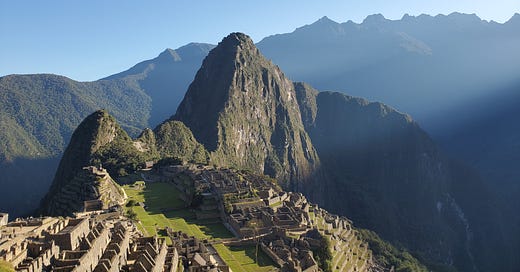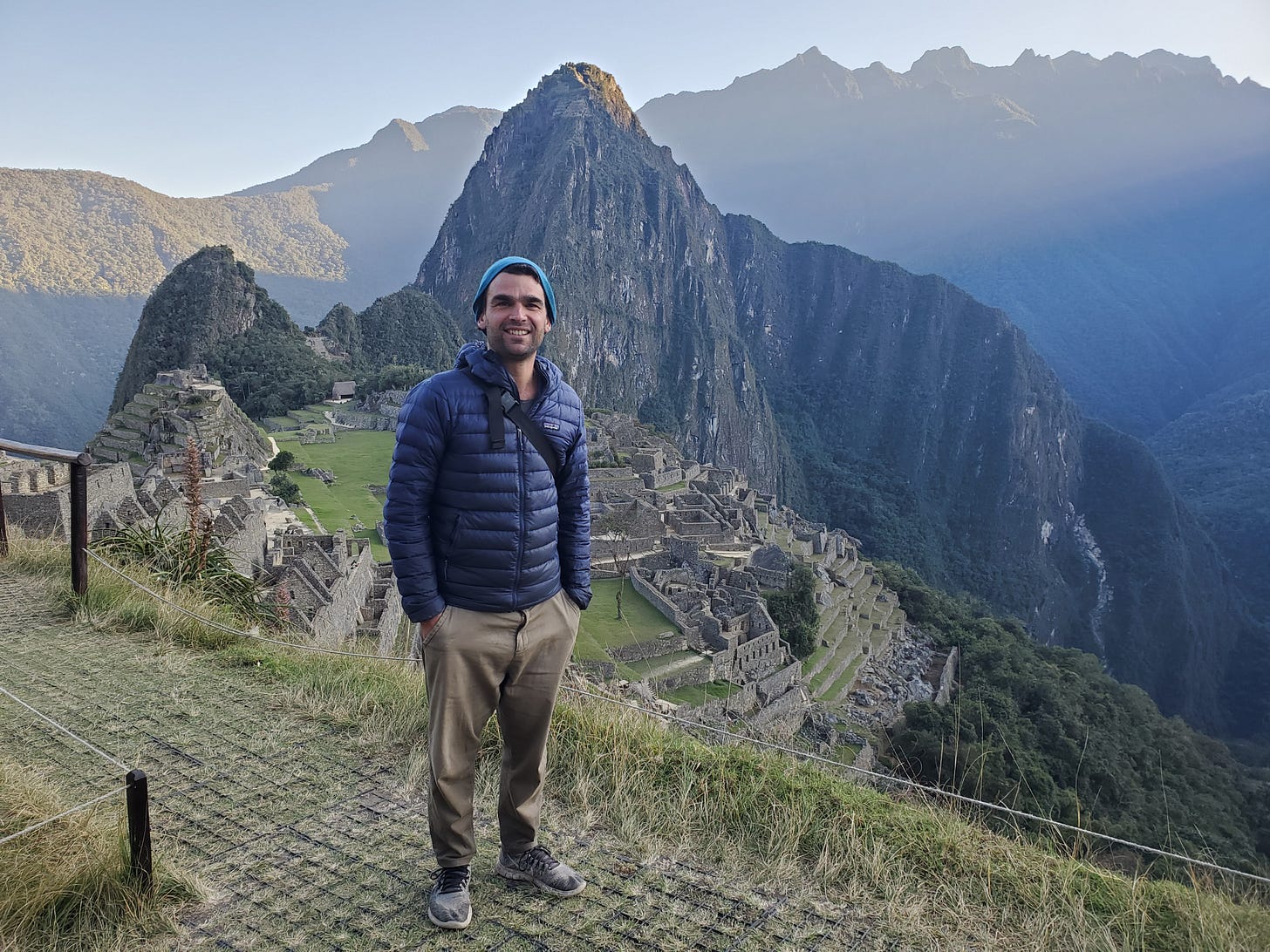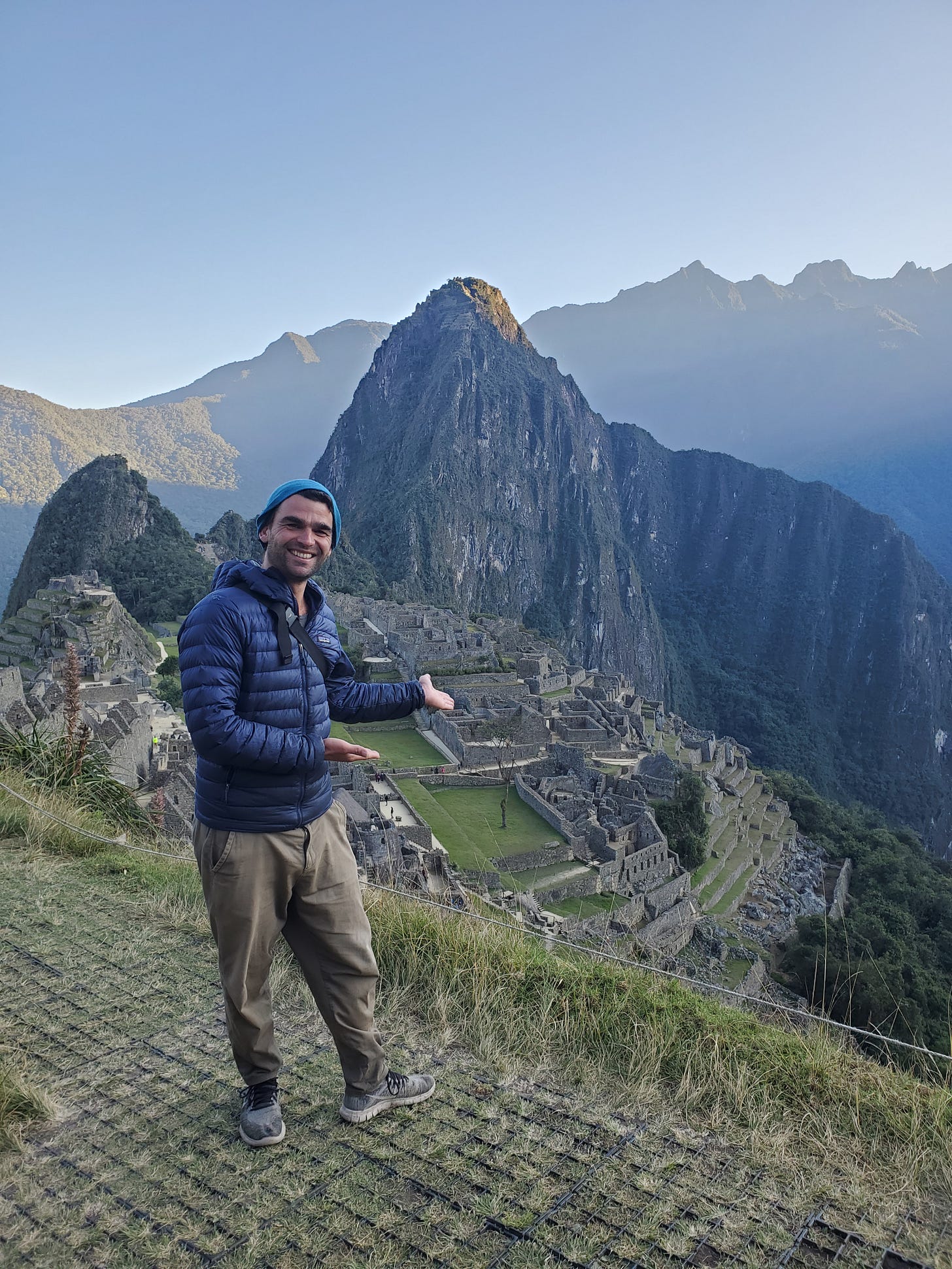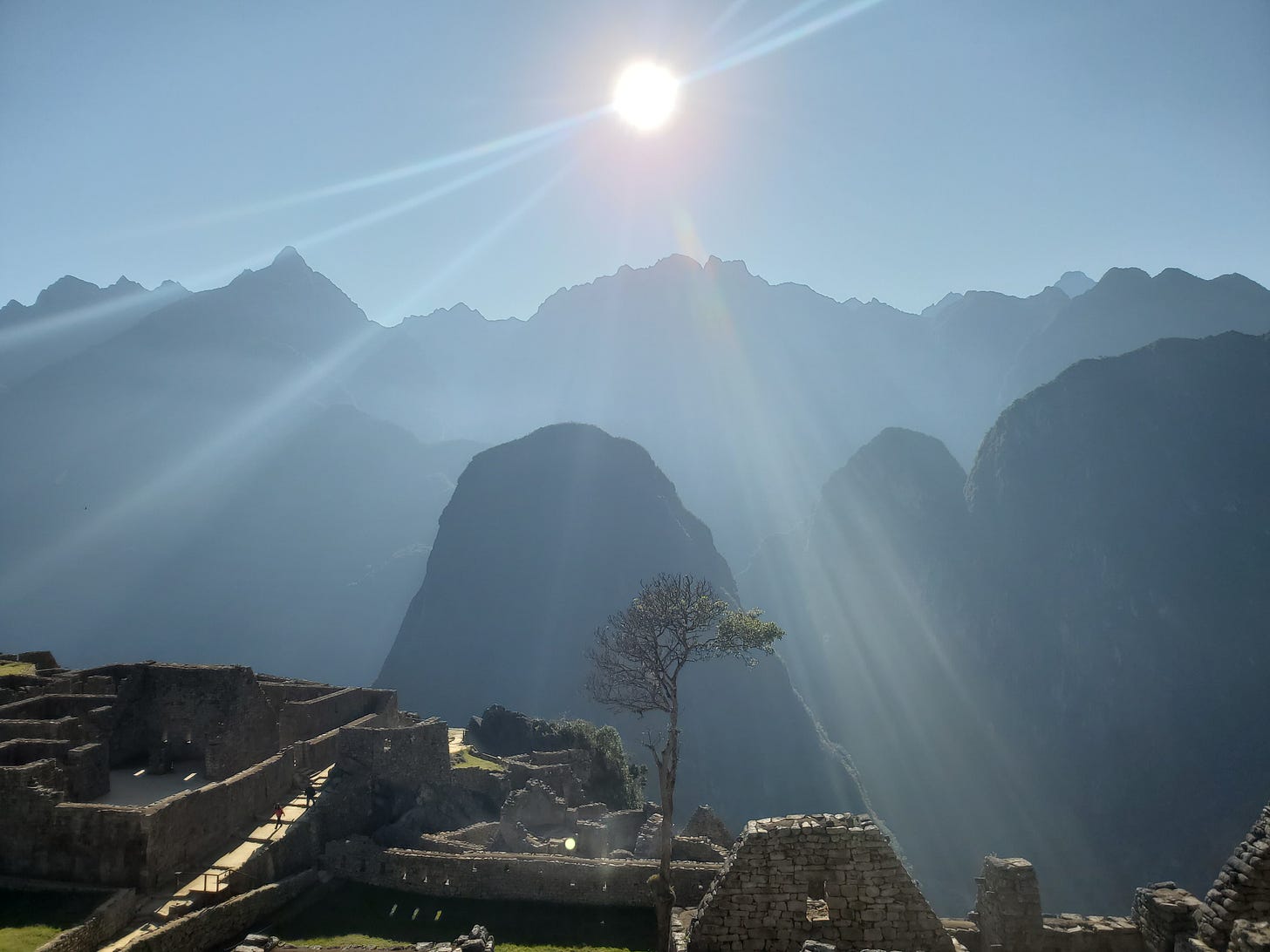I visited Machu Picchu recently without great enthusiasm. It was a detour that kept me at higher altitude for weeks that — after a month and a half already above 3000m — I could have happily done without. Altitude being conjoined with mountains, they were also weeks of frequently beautiful but seldom easy riding, and there comes a time in a journey by bicycle where some easy kilometres would be nice. As one of the most touristed places on earth, complete with the beautiful visual cliche above, I presumed crowds and a feeling of mass-produced experience that—although industrial tourism fascinates me—I had limited enthusiasm for.
Nonetheless I visited Machu Picchu because I had to. I had to because Guevara went there and — while I have deviated from his route — Machu Picchu is so central to the Latin America that Guevara discovered as a young man, and remains so central to what Latin America is today, that it would have been a cavernous hole in my journey had I not gone.
Guevara’s words in his diary in 1952 still summarise perfectly the importance of Machu Picchu, in a fashion unchanged to this day.
"The most important & irrefutable thing is that here we found the pure expression of the most powerful indigenous race in the Americas."
If indeed much of my journey has shown me a Latin America that is— more than I ever expected —still reeling from both Spanish colonialism and the US extermination of its social and public space during the 20th century, Machu Picchu is the antithesis of all this. Machu Picchu represents a cultural epicentre, a Latin American core, where the indigenous power system implicit to this ancient city was never found by Spanish colonisers, as such was never destroyed, and as such is an unassailable touchstone for any building and rebuilding of indigenous and ideological power in Latin America.
To what extent every visitor to Machu Picchu is looking for the things I was, I am not sure. There is a deep irony to the many Israeli tourists who visit this citadel of an indigenous culture, where a resisting army was never discovered by the coloniser, and from the very idea of which resistance continued to burn until it eventually manifested in the Bolivarian Revolution. Never has the role of tourism in blinding us to the parallels with our own daily life and politics seemed so acute, although I wonder if perhaps Israelis visit Machu Picchu rooting for the Spanish.
There is of course, as is always the case with mass tourism, the heightened significance that must be invested in these experiences in order to heighten lives, particularly western lives, that travel so far and spend so much to attain them. On the one hand, I see westerners with walking poles, expensive boots and coats and trousers, inhaling additional oxygen from tiny canisters. On the other I see a Peruvian couple where he carries their small rucksack, wearing jogging bottoms and trainers, while she is in an outfit — fake fur collar, slim fit jeans possibly too small for her — that represents a compromise between needing to walk up a mountain yet still look good at the top, for the photo that will live forever: the day she walked up Machu Picchu.
As is always so, the photos are probably among the most revealing insights into the psychology of Machu Picchu. Social media profiles flood with images of individuals at Machu Picchu, all in their own way conquering or domesticating Machu Picchu, so that rather than us being pilgrims to it; it becomes an accoutrement to us. Machu Picchu lends its own splendour to the unrivalled splendour that is a twenty-first century individual and the eternal task to glorify one’s own life.
The epitome of such a use of image is perhaps the western coloniser, however, it would be a lie to suggest that Latin American, and particularly Peruvian, social media is not similarly awash with images of Latin Americans also conquering Machu Picchu. Social media has perhaps in some small way democratised colonising, so that now everyone can conquer Machu Picchu.
If I were to probe the idea a little, differences still exist. Westerners take more photos of Machu Picchu in ways that frame-out people, so that Machu Picchu stands alone in the image; pristine and as if undiscovered, or perhaps discovered but only by he or she capturing the image. There is a greater conceit here, the lie of isolation that pretends we were alone on Machu Picchu when we all know that such —even at my 7am slot— is impossible. Latin Americans, I feel, find this conceit unappealing; the whole purpose of the exercise is that they are at Machu Picchu, delighted at the triumph that represents, and to go out of one’s way to pretend otherwise defeats the purpose of the entire exercise. But these are only idle thoughts, and I’ve no doubt they’d be proven as wrong as often as right.
For all that there is room to probe and play with all this, other elements of the psychology are important. Peruvians of the province of Cusco have free entry to Machu Picchu, because it is their culture and history and essential that they access it. Given that Cusco residents anyway have fewer costs involved with getting to, and staying at, Machu Picchu, it seems counterintuitive that such a subsidy isn’t extended to other Peruvians who have further to go to reach it. Peruvians, naturally, do pay less than westerners to visit Machu Picchu though, rightly, and because of course the place corresponds to an empire before such borders anyway, so too do fellow Andinos of Bolivia and Colombia.
I confess to sometimes finding Latin America hard. There is no doubt that — with the help of US-sponsored death squads to ensure that very thing— capitalism triumphed brutally here. Indigenous culture is frequently marginalised in ways that are of course bad in and of itself, but more often — and perhaps equally or more debilitating, with Chile the prime example —feel like they have also left a confusion in the space that was vacated. Seen from the outside— and I am, cycling through, a permanent outsider— this becomes a space where the solidity of consumerism, capitalism and imported culture provides a new but unfulfilling certainty.
In the generations of work it will take to fully rectify the harm that was also done across generations, Machu Picchu is foundational. Heightened by the peace and the light of its setting, it gives an unmistakable awareness, and with it a solidity, that once there was a greatness here for the ages, and so there can be again.







